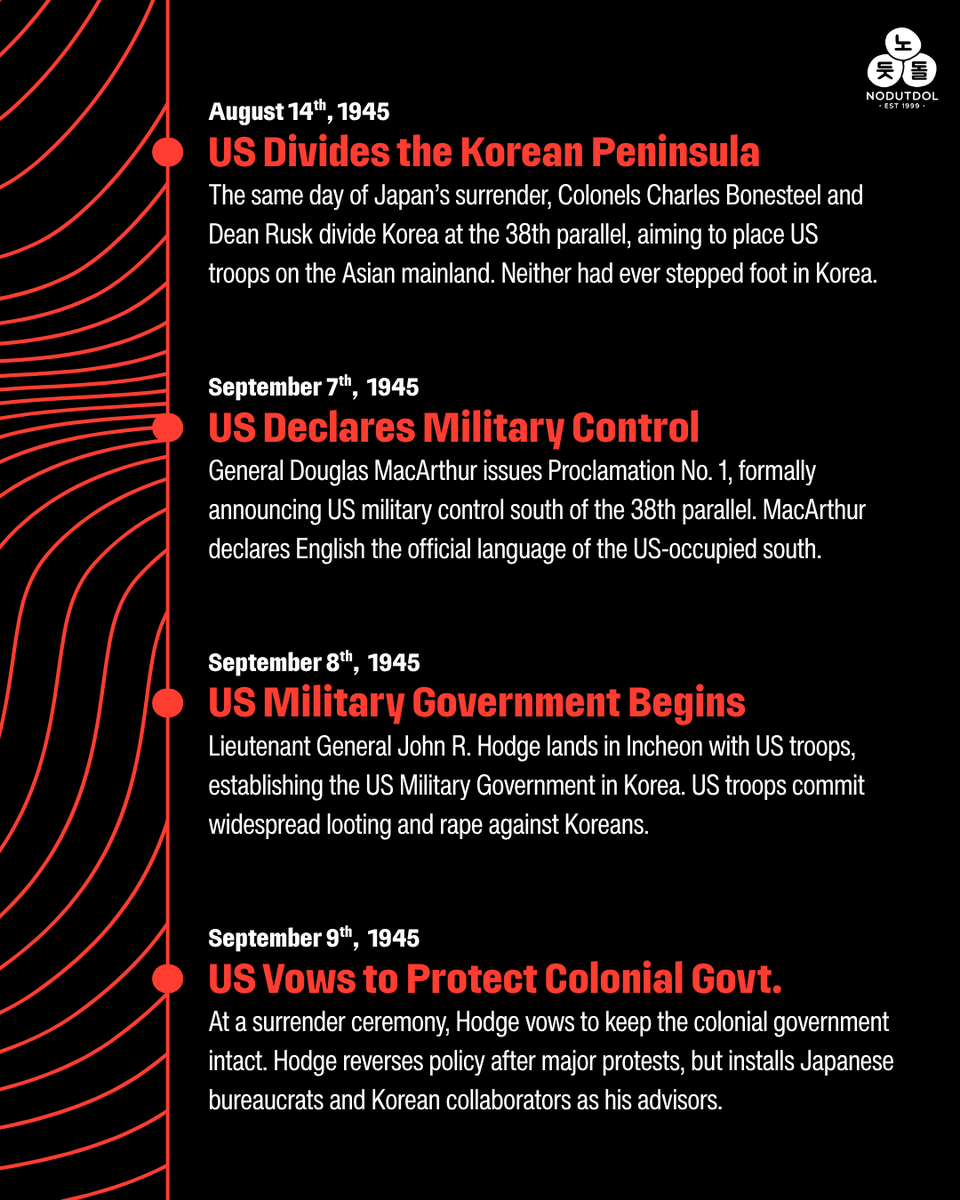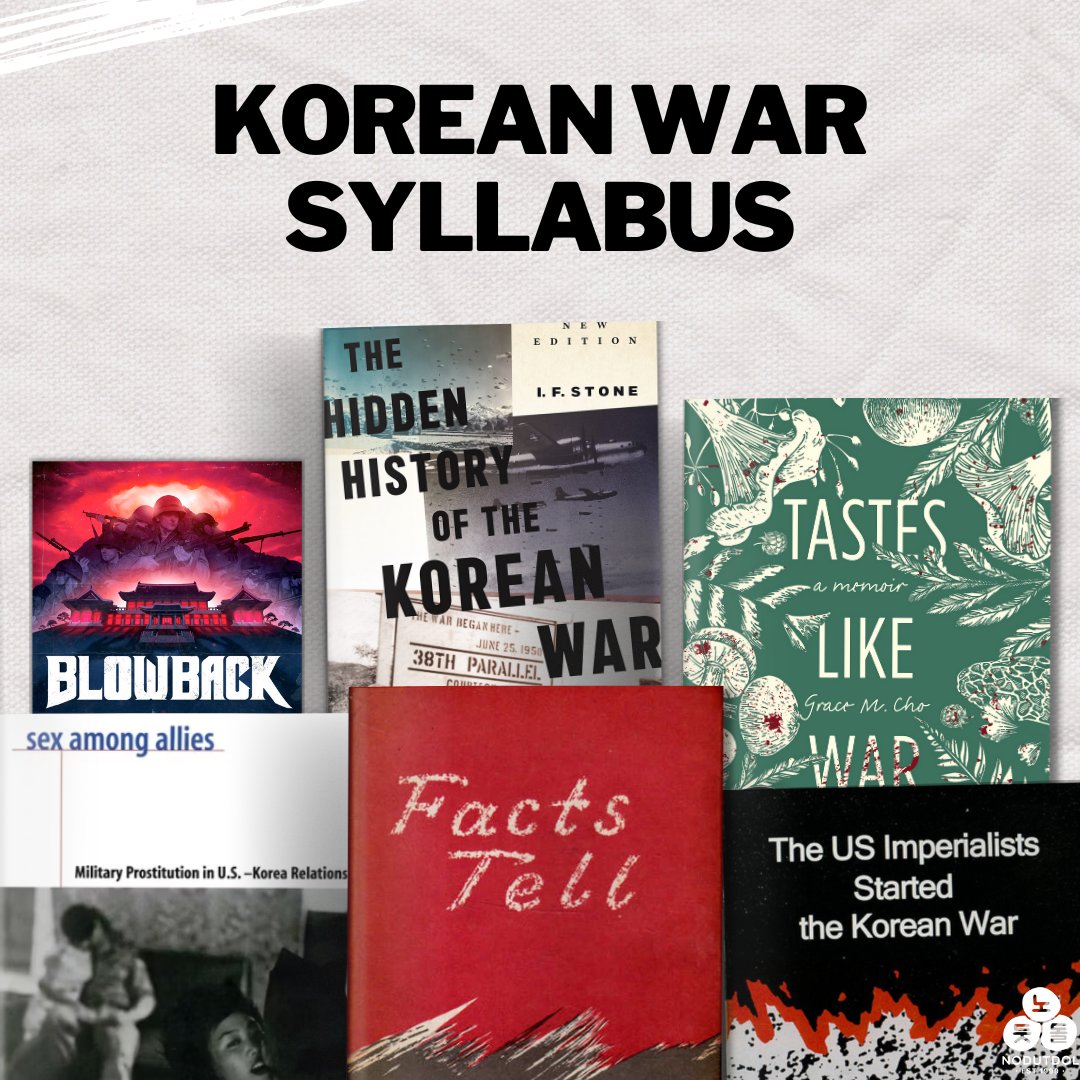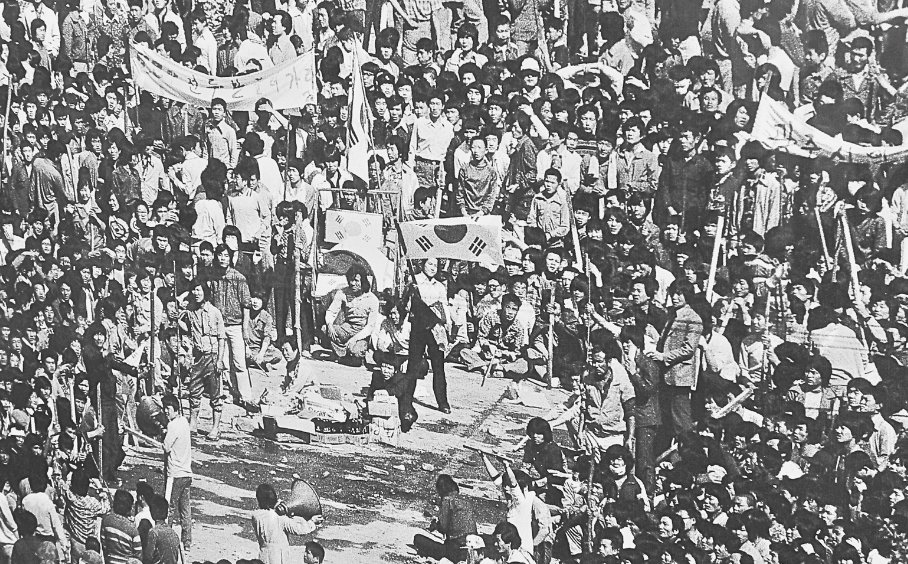🧵US military pollution in Korea
The US military is poisoning Korea’s air, land, and water—and South Korea is paying hundreds of millions of dollars to clean up the mess.
Here's an overview of the US military's environmental destruction, focusing on four former base sites.
The US military is poisoning Korea’s air, land, and water—and South Korea is paying hundreds of millions of dollars to clean up the mess.
Here's an overview of the US military's environmental destruction, focusing on four former base sites.

Over 70+ years the US military has ruined 10,000s of acres of Korean land. 28,500 troops occupy Korea today.
In 2004 the US began to "consolidate" its forces, closing some bases & expanding others. This relocation revealed the extent of environmental damage in many former bases.
In 2004 the US began to "consolidate" its forces, closing some bases & expanding others. This relocation revealed the extent of environmental damage in many former bases.

By 2016, dangerously high levels of heavy metals, pesticides, and other carcinogens were found at 22 out of 23 former bases.
Despite treaty agreements to "remedy contamination caused by United States Forces in Korea," the US refuses to pay for the est. $500 million clean-up.

Despite treaty agreements to "remedy contamination caused by United States Forces in Korea," the US refuses to pay for the est. $500 million clean-up.

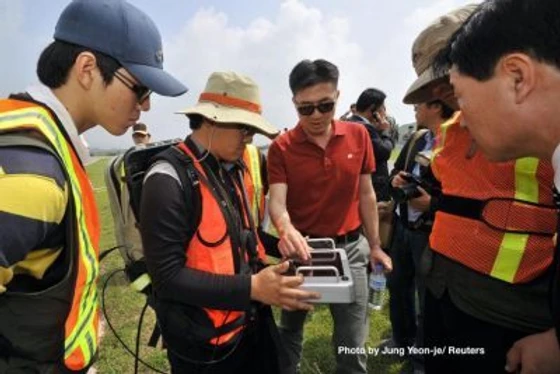
Here's a closer look at four former base sites, all in or near populous Korean cities. Toxic chemicals at up to 1000x the ROK safety level have been found at these sites.
Camp Page, Chuncheon (200K)
Camp Carroll, Daegu (2M)
Camp Hialeah, Busan (3M)
Yongsan Garrison, Seoul (10M)



Camp Page, Chuncheon (200K)
Camp Carroll, Daegu (2M)
Camp Hialeah, Busan (3M)
Yongsan Garrison, Seoul (10M)




The US calls its base closures "land returns." Most of this "returned" land is dangerously toxic. At the same time, the US conducts new land grabs.
Since 2004, the US has seized 2000+ acres near Camp Humphreys in Pyeongtaek. Here are photos from the Pyeongtaek land struggle.


Since 2004, the US has seized 2000+ acres near Camp Humphreys in Pyeongtaek. Here are photos from the Pyeongtaek land struggle.

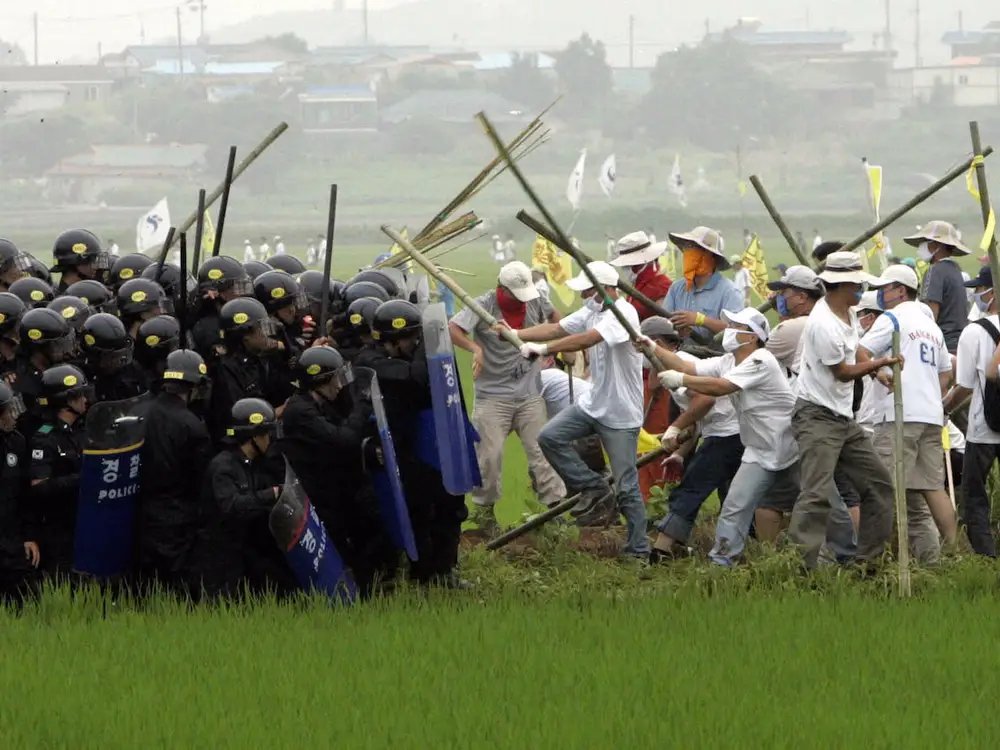

The ROK doesn't just for the US's environmental damage, or its relocations, closures, and expansions of bases. In 2010, the ROK also covered 40% of USFK's operating costs. That amount has increased as new payment deals were made by Presidents Trump and Biden. 

The US military is the world's #1 polluter, poisoning and irradiating the air, ground, and water of countless peoples throughout the globe. Its massive carbon footprint also drives climate disasters that displace and kill people in these regions every year. 

Currently, there is public outcry in Okinawa because the United States Marine Corps is dumping toxic chemicals into the civilian wastewater system.
Everywhere they go, the US military attacks the people by attacking the land and water. english.ryukyushimpo.jp/2021/08/31/340…
Everywhere they go, the US military attacks the people by attacking the land and water. english.ryukyushimpo.jp/2021/08/31/340…
The US military's environmental destruction is a powerful example of South Korea's neocolonial status.
The US flouts ROK laws and benefits politically & economically from Korea's occupation. Meanwhile, Koreans bear the environmental, public health, & fiscal costs.
The US flouts ROK laws and benefits politically & economically from Korea's occupation. Meanwhile, Koreans bear the environmental, public health, & fiscal costs.

Our people have long considered mountains, bodies of water, and forests to be sacred.
Ending US occupation is not just a question of sovereignty but also a question of protecting the land and water, our bodies, and our relationship to the living world.
Ending US occupation is not just a question of sovereignty but also a question of protecting the land and water, our bodies, and our relationship to the living world.

• • •
Missing some Tweet in this thread? You can try to
force a refresh



